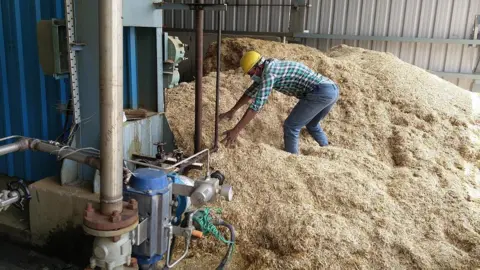India has saved valuable dollar reserves and reduced millions of tons of carbon dioxide emissions thanks to its push to mix more biofuels with gasoline.
However, it has also raised concerns about its possible effects on food security and fuel efficiency among food policy specialists and car owners. India met its goal of blending 20% ethanol with gasoline, or E20, last month, five years ahead of schedule.
In terms of cutting carbon emissions and importing less oil, the administration sees this as a game changer. Blending ethanol has helped India save 1.36 trillion rupees ($1.5 billion; £1.1 billion) in foreign exchange and reduce 69.8 million tons of carbon dioxide emissions since 2014.
According to a research by the Council on Energy, Environment and Water (CEEW), a think tank based in Delhi, road transportation in India will almost treble its carbon dioxide emissions by 2050.
Fuel demand will only rise, therefore switching to ethanol-blended gasoline is crucial to reducing emissions, Sandeep Theng of the Indian Federation of Green Energy, a group that supports green energy, told the BBC. However, a large number of cars in India do not comply with E20, which makes their owners doubt the policy’s advantages.
Also Read:
Medhat Elabd: Driving Financial Foresight Through Trust and Precision





